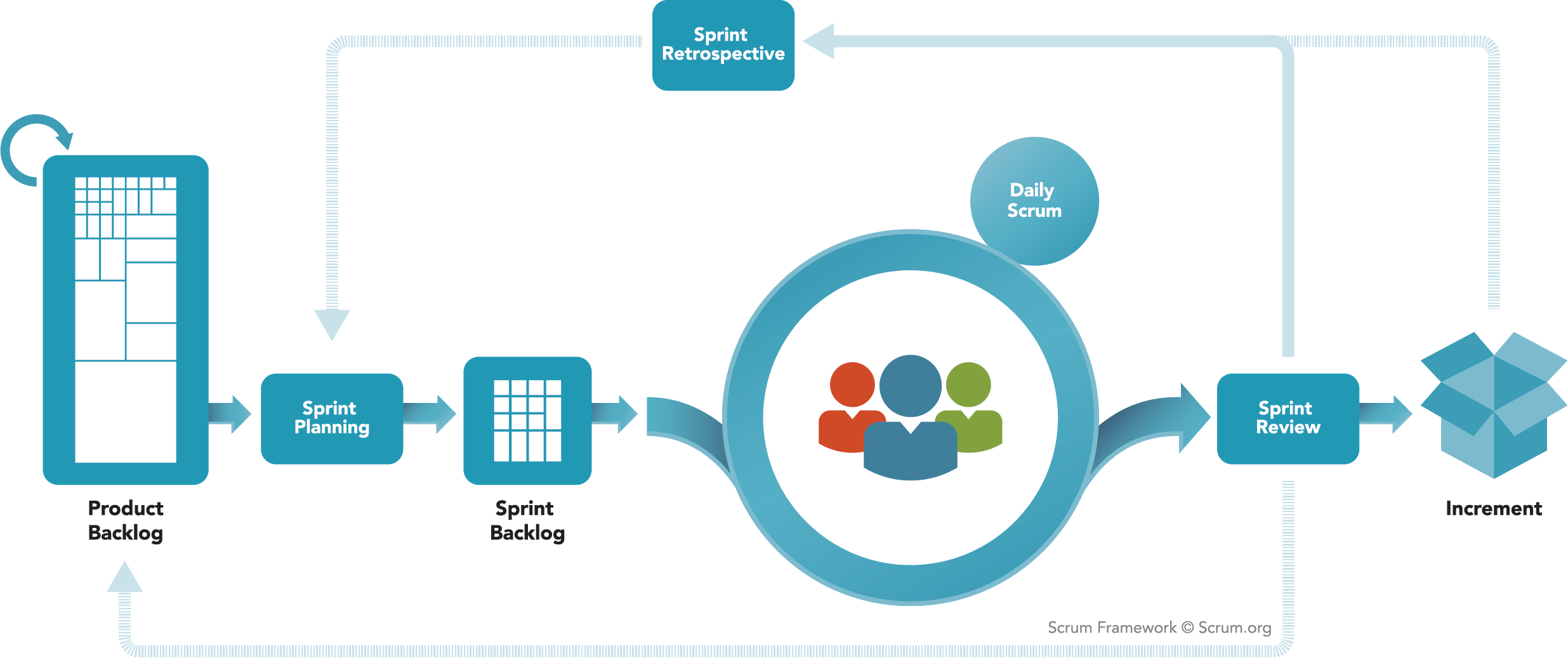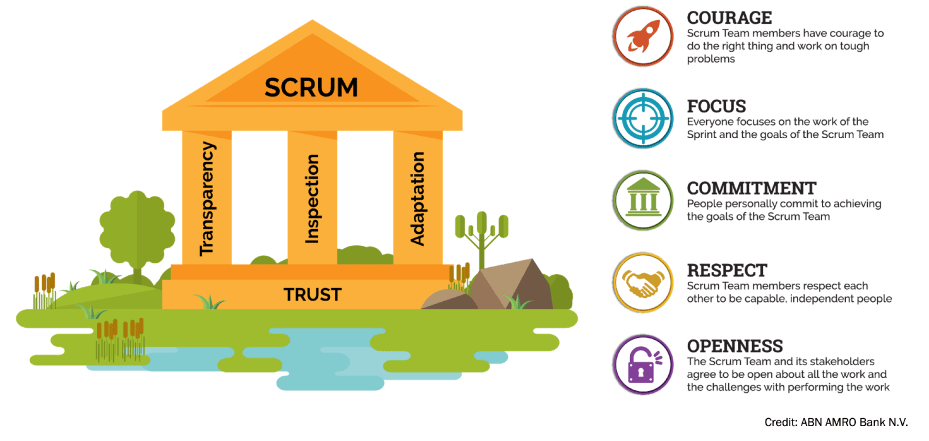Scrum Team consisting of a Product Owner, a Scrum Master and Developers
The Scrum Team takes part in five events and produces three artifacts
As already mentioned, there are accountabilities, events and artifacts that make up the Scrum Framework as well as other attributes that support Scrum. Read the Scrum Glossary to explore the terminology within Scrum or explore the key elements below:
Scrum Master - the person on the Scrum Team who uses their knowledge of Scrum to help the team and organization to be as effective as they can be; they do so by taking approaches like coaching, teaching, facilitating and mentoring
Product Owner - the person on the Scrum Team who makes sure that the team is creating the most valuable product they can create
Developers - the people on the Scrum Team who work together to create the product
Sprint - short cycles of one month or less, during which the work is done; the Sprint contains all of the other Scrum events; a new Sprint starts immediately after the conclusion of the previous Sprint
Sprint Planning - event dedicated to planning out the work that will take place during the Sprint
Daily Scrum - event held every day where the Developers inspect the progress toward the Sprint Goal, uncover anything that may be getting in their way and adapt accordingly
Sprint Review - event held at the end of the Sprint where the Scrum Team and key stakeholders review what was accomplished in the Sprint and what has changed in their environment; next, attendees collaborate on what to do next
Sprint Retrospective - the Scrum Team gets together during this event to talk about how the last Sprint went and identify the most helpful changes to improve their effectiveness
Product Backlog - an evolving, ordered list of what is needed to improve the product; it is the single source of work undertaken by the Scrum Team
Commitment: Product Goal - the target the team plans against
Sprint Backlog - a highly visible list of work that is the Developer’s plan for the Sprint, which may evolve as they learn
Commitment: Sprint Goal - the single objective of the Sprint
Increments - small pieces of work that serve as concrete stepping stones toward the Product Goal. You can deliver as often as needed during the Sprint and are not limited to only one release per Sprint.
Commitment: Definition of Done - the description of what it takes for an Increment to be considered complete

